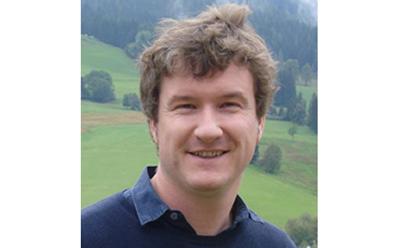Southampton Mathematical Sciences academics share prizes for gravitational waves detection

Two Mathematical Sciences academics have been recognised for their contribution to the discovery of gravitational waves, sharing the Special Breakthrough Prize in Fundamental Physics, and the Gruber Cosmology Prize, as part of the international Laser Interferometer Gravitational-Wave Observatory (LIGO) team.
The Special Breakthrough Prize recognises extraordinary scientific achievement and the $3 million award will be shared between two groups of laureates: the three founders of the LIGO and 1,012 contributors to the experiment, including Dr Ian Jones and PhD student Greg Ashton.
The Gruber International Prize Programme honours individuals in the fields of Cosmology, Genetics and Neuroscience, whose ground-breaking work “provides new models that inspire and enable fundamental shifts in knowledge and culture”. The Cosmology Prize – in this case also shared among the LIGO founders and contributors – honours “a leading cosmologist, astronomer, astrophysicist or scientific philosopher for theoretical, analytical, conceptual or observational discoveries leading to fundamental advances in our understanding of the universe”.
The first efforts to detect gravitational waves were made in the 1960s. The LIGO detectors were built between 1994 and 2002 by Caltech and MIT in partnership with the National Science Foundation of the United States, with the aim of observing the gravitational waves predicted by Einstein’s general theory of relativity.
After a major upgrade between 2010 and 2015, the LIGO detectors almost immediately observed a gravitational wave distorting the structure of spacetime as it passed through the Earth. The wave emanated from two black holes with masses about 30 times that of the sun, spiralling into each other 1.3 billion light years away.
Dr Ian Jones said: “These two awards were unexpected but very welcome, and make Greg and I all the more proud to be part of the world-wide gravitational wave detection effort.
“The awards underline the significance of this detection, which opened a new window onto the Universe, and marked the birth of the field of gravitational wave astronomy.”
Stephen Hawking, who won the Special Breakthrough Prize in 2013, said: “This discovery has huge significance: firstly, as evidence for general relativity and its predictions of black hole interactions, and secondly as the beginning of a new astronomy that will reveal the universe through a different medium.
“The LIGO team richly deserves the Special Breakthrough Prize.”